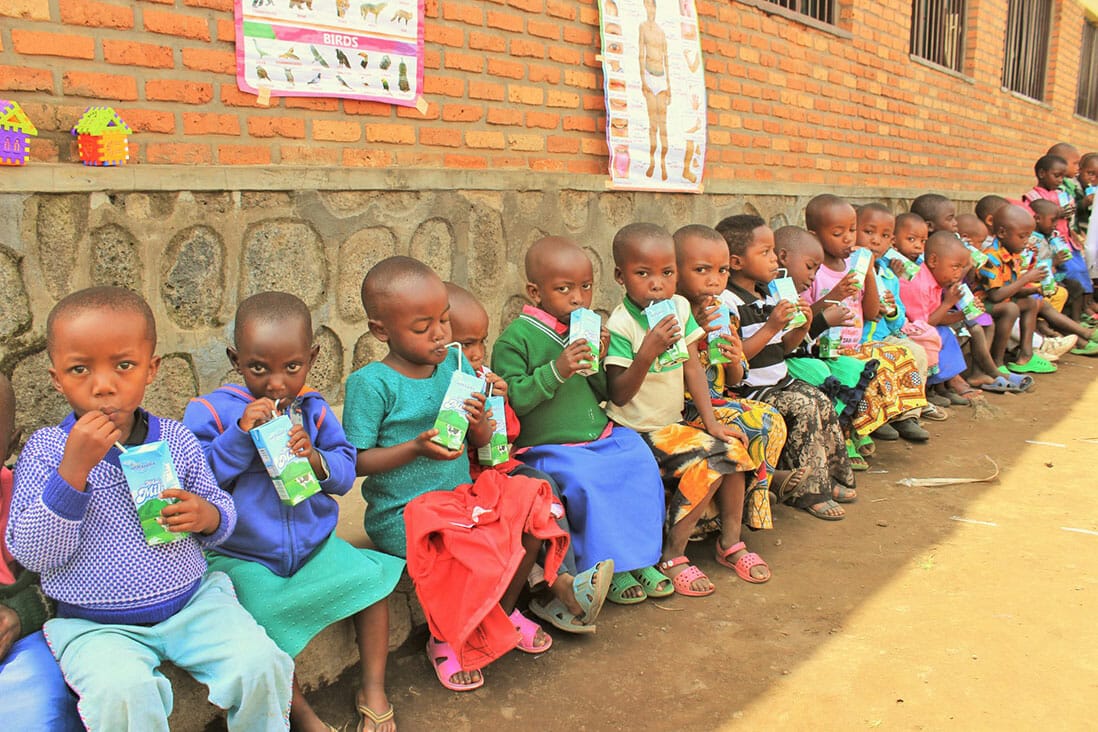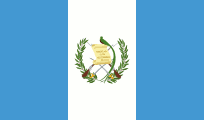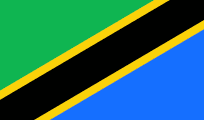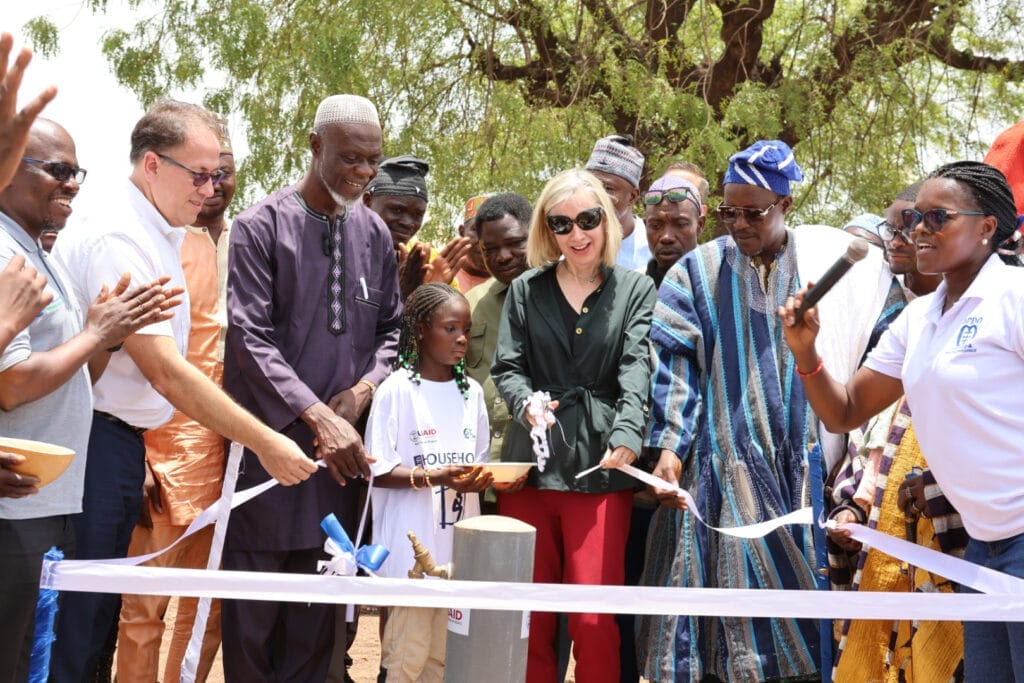Proper nutrition is the foundation for a healthy life, and is especially critical for pregnant women, adolescents and young children. Chronic malnutrition among children has long-term effects on individuals and societies, including diminished cognitive and physical development, poor health and an increased risk of degenerative diseases such as diabetes.
We address the immediate factors that affect maternal and child nutrition with evidence-based approaches that are integrated or bundled with one another, tailored to the local context and delivered through local health, food and education systems and structures. Our initiatives include breastfeeding promotion, Kangaroo Mother Care for preterm and low birthweight babies, increasing adequate food and nutrient intake through the promotion of optimal age-appropriate complementary feeding practices, growth monitoring and promotion, multiple micronutrient supplementation in pregnancy, community management of acute malnutrition, anemia screening and direct food provision.
Our nutrition-sensitive approaches create environments for better nutrition practices and outcomes through climate-smart agriculture and agribusiness, cash transfers and savings groups, water, sanitation, and hygiene for disease prevention, food safety in schools and family planning.
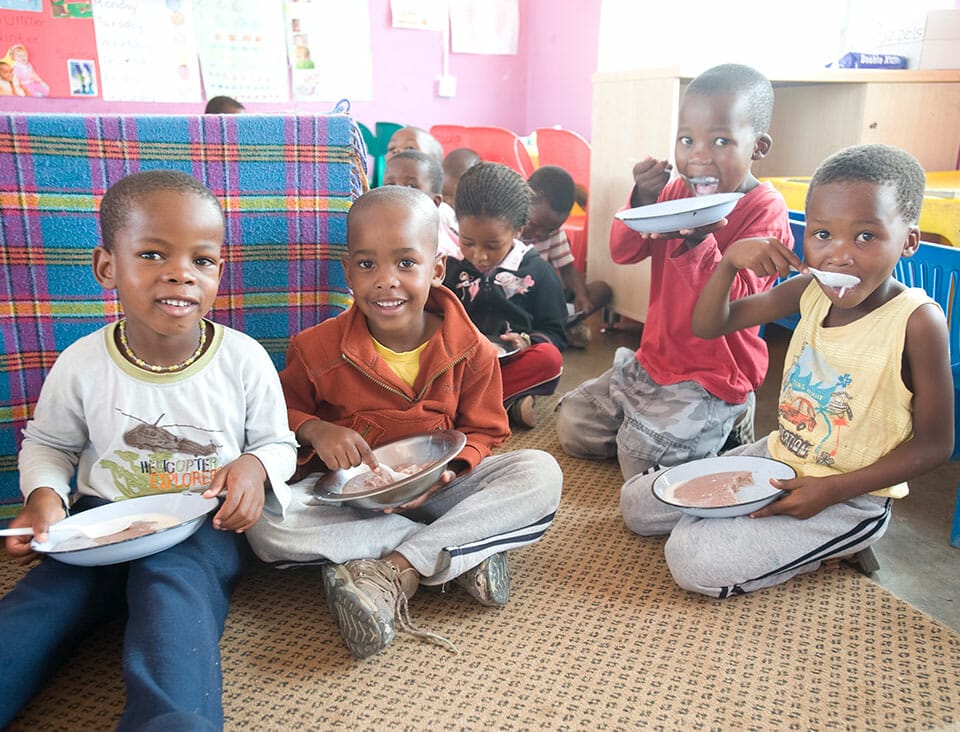
Prenatal Micronutrient Supplementation
Evidence has shown that maternal micronutrient supplementation containing iron and folic acid improves the survival of newborns and provides greater birth outcomes in circumstances where the mother is undernourished during pregnancy. We work in close partnership with Kirk Humanitarian to distribute multiple micronutrient prenatal vitamins using national distribution systems. Since 2010, Global Communities, then working as PCI, has shipped and distributed over 438,000 bottles of vitamins to Botswana, Guatemala, Haiti, Liberia, Malawi and Zambia.
Age-Appropriate Complementary Feeding Practices & Growth Monitoring
As infants grow, their nutritional needs change and complementary foods should be combined with breastmilk at six months of age. Partnering with mothers, fathers and other family members is critical to ensuring that children receive diverse and nutritious diets that help them grow and thrive. We support households by providing optimal infant and young child feeding practices. This requires the provision of accurate information about children’s dietary needs as well as addressing the enabling environment to help parents source and prepare nutritious, safe, and diverse meals.
In India, we layer infant and young child feeding education within self-help groups to help members learn to better care for themselves and their children. The program utilizes campaigns and community events, household visits, cooking and feeding demonstrations and videos to share information about exclusive breastfeeding, complementary feeding, proper hand-washing and other healthy practices. We implemented a similar approach in Malawi through the Njira Pathways to Sustainable Food Security project, which trained 74,504 care group participants in maternal and newborn care, breastfeeding and age-appropriate complementary feeding practices. We also built dialogue using father groups, couples workshops and community dialogues to enhance communication and problem-solving at household and community levels to promote gender equity and improve infant and young child feed practices at home.

Breastfeeding Support & Kangaroo Mother Care
We partner with mothers, fathers and families to promote exclusive and continued breastfeeding to help children get the best start in life. As breastfeeding provides unmatched benefits for babies and mothers, with breastmilk uniquely tailored to meet the health needs of a growing baby, we strive to create supportive environments for mothers who choose to breastfeed. In addition, skin-to-skin contact in the form of Kangaroo Mother Care with their mothers, fathers and other caretakers keeps babies warm, enhances nutrition outcomes for newborns and can prevent infection after birth. We support mothers and families on this method, with special attention for early and small babies in this vital practice.
Community Management of Acute Malnutrition
A child with severe acute malnutrition is more than 11 times more likely to die, and a child with moderate acute malnutrition is three times more likely to die than a well-nourished child. The management of malnutrition is a high-impact, nutrition-specific intervention that can help reduce wasting and stunting. Community Management of Acute Malnutrition is a proven approach in children under five years old, and is a key strategy for identifying, referring and following up on children with acute and moderate malnutrition, ensuring that they receive timely, lifesaving care and support.
Resiliency in Northern Ghana, a five-year project funded by USAID under the Feed the Future initiative, was designed to contribute to the Government of Ghana’s efforts to sustainably reduce poverty and improve the nutritional status of vulnerable populations. We worked with mother-to-mother support groups to promote exclusive and early initiation of breastfeeding, the consumption of vitamin-A-rich foods, appropriate care for sick children, referring cases of malnutrition, best practices in sanitation and hygiene and good agronomic practices. In partnership with the Northern Regional Health Directorate, we worked with Ghana Health Services staff and community health volunteers to provide adequate knowledge, skills and competencies in key nutrition programs.
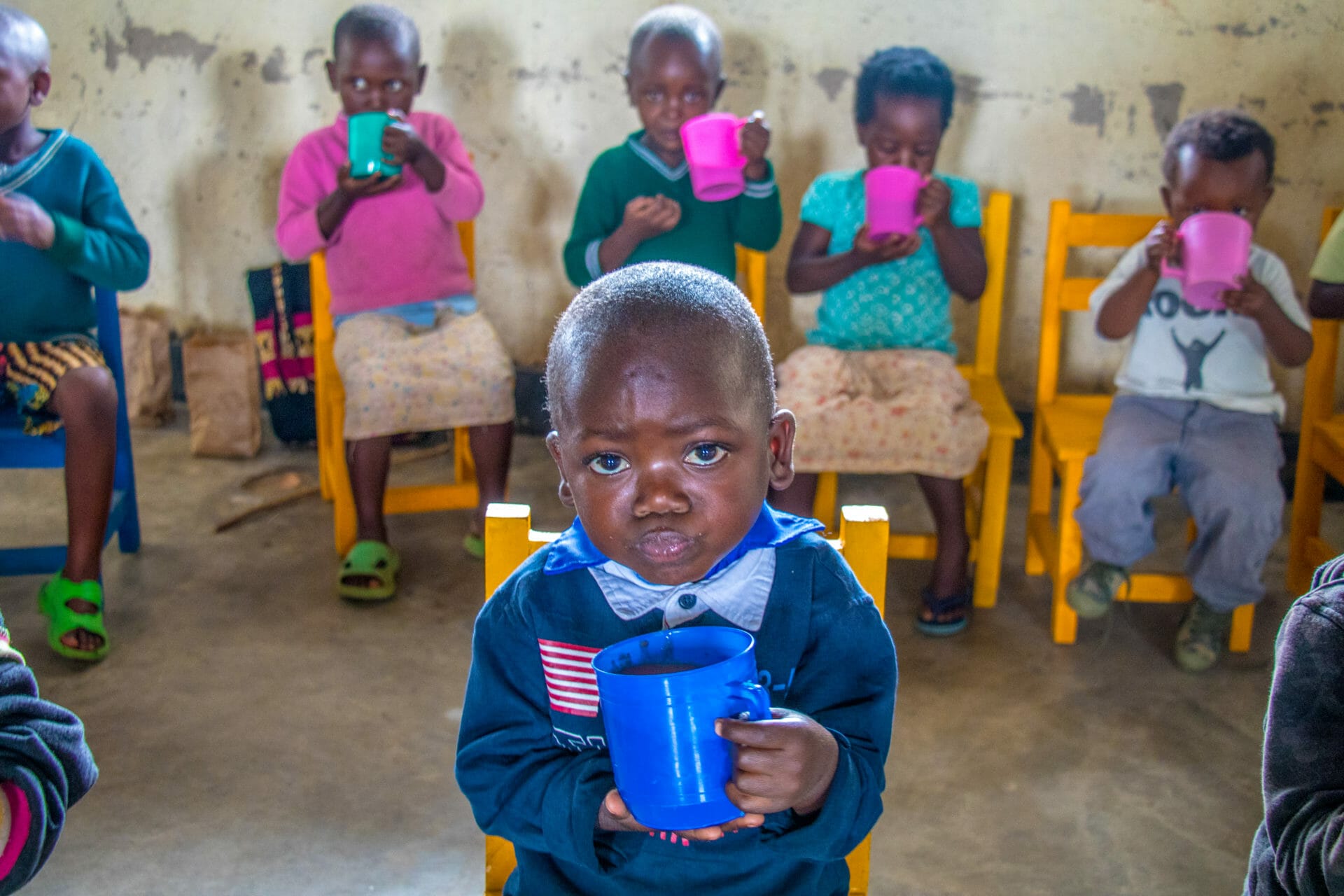
Early Childhood Development
The early childhood years lay the foundation for children’s development and the acquisition of important skills necessary to succeed in school. Undernutrition and inadequate stimulation are significant risk factors for poor early child growth and development outcomes. To address these needs, we utilize community parenting groups and bundled parenting and nutrition behavior change approaches to strengthen the capacity of mothers and fathers in providing optimal, nurturing care for their young children. These approaches include nutrition, responsive care, early learning, and clean and safe home environments. We have also developed strategies for identifying, referring and following up with children suffering from acute and moderate malnutrition to ensure they receive timely, life-saving care.
In the Mara region of Tanzania, our Engaging Fathers for Effective Child Nutrition and Development in Tanzania study (EFFECTS), an integrated nutrition and parenting implementation research study, measured the effectiveness of parenting behavior change interventions that include engaging fathers in providing care on children’s dietary diversity, growth and developmental outcomes. Funded by the Eleanor Crook Foundation and Conrad N. Hilton Foundation and in partnership with Harvard University, Purdue University, and the Africa Academy of Public Health, the study found that engaging fathers improved multiple outcomes, including nutrition diversity, early child development and growth, market purchasing and household garden behaviors.
Also in Tanzania, we designed and implemented a community parenting model called First Teacher Groups to target early learning among children 3-5 years of age. Every week, parents and their children met with a group facilitator from the same village to share information, sing songs, tell stories and learn how to play responsively with their children. A robust evaluation of the model found significant improvements in parenting practices related to early learning, the available of playthings in the home and child brain development compared to a similar study population that did not receive the First Teacher Group intervention.
Climate-Smart, Nutrition-Sensitive Agriculture & Agribusiness
To support livelihoods, boost nutritional diversity and increase household food security, we help communities build resilience by improving agricultural productivity, connecting farmers with markets, promoting the formation of village savings and loan groups, conducting trainings on conservation agriculture and facilitating linkages between farmers and high-quality seed suppliers. Our agriculture initiatives support household nutrition by arranging home garden vegetable production training and building the capacity of individuals to sell their surpluses so that more people have access to fresh, local foods.
In Guatemala, ¡Ánimo!—a program formerly led by PCI—provided access to seedlings for planting nutritionally-dense foods, allowing households to produce their own foods. In remote communities where home gardens can yield little to no crops, we helped households design simple raised beds and inexpensive homemade plastic tunnels that are easy and affordable to maintain. During the COVID-19 pandemic, when travel to markets was significantly reduced, families were able to access fresh, local, nutrient-dense foods.
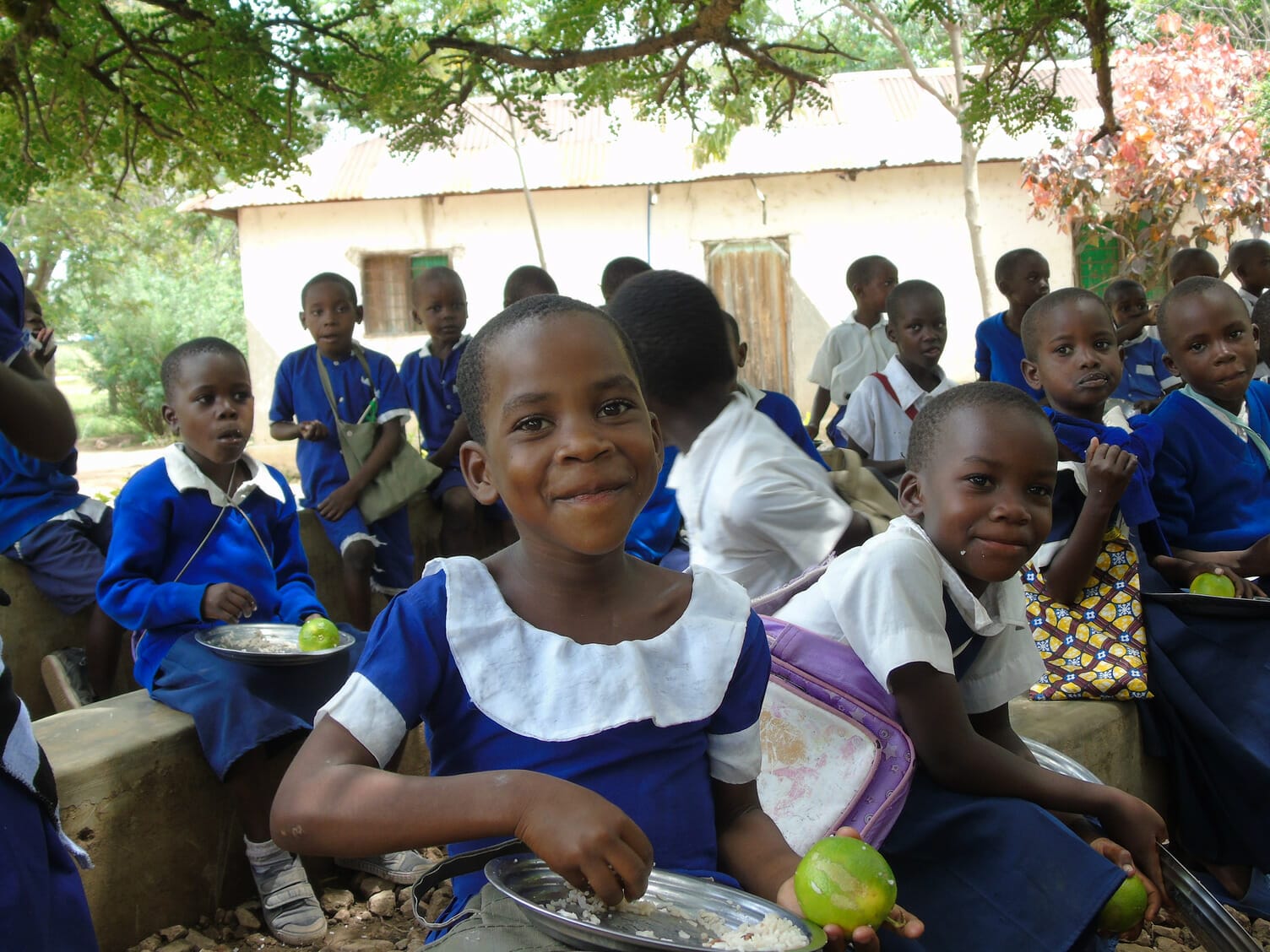
School Meals and School-Based Health Education for Better Child & Adolescent Nutrition
Global Communities’ integrated school feeding programs use a multidisciplinary, student and community-centered approach to reduce food insecurity, improve the quality of and access to primary education and enhance nutrition. We devote resources and energy to advocacy, training and coalition building so that community members become engaged and equipped to lead, support and sustain projects and initiatives such as establishing school libraries, preparing school meals, building latrines and kitchens and planting school and community gardens. When everyone in the community is devoted to student success and takes ownership of these programs, the whole community benefits.
With two decades of experience implementing holistic school feeding programs in Bolivia, Nicaragua, Guatemala and Tanzania, Global Communities has created and refined tools and approaches to strengthen the capacity of local government officials, school administrators, teachers and parent chefs to ensure the safe preparation and provision of daily nutritious meals, record-keeping, storage, ordering and distribution of meals, proper hygiene, food handling and safety, nutrient preservation and strategies for minimizing the environmental impact of school meal production.
In Guatemala, we developed a guide for the implementation of school gardens, which serves not only as a source of fresh produce to improve the nutritional content of school meals, but also as a practical teaching tool, incorporating different school subjects from the basic national curriculum such as science and math. To improve the availability and access to educational materials in local languages, we also designed and produced a series of storybooks addressing topics related to health, nutrition, hygiene and clean water in multiple languages, including Spanish, Mam and Q’anjob’al.
From 2016 - 2021, the school feeding program in Tanzania provided over 33 million school meals for more than 200,000 students, enabling vast improvements in 231 primary schools through an integrated package of interventions to improve students’ literacy outcomes, enhance their overall educational performance and improve students’ health and nutrition practices. The experiences and insights gained during program implementation directly influenced the development of the Government of Tanzania’s National School Feeding Guidelines, the National School Health Promotion Guide and Manual and the design of the Mara Region School Feeding Strategy.
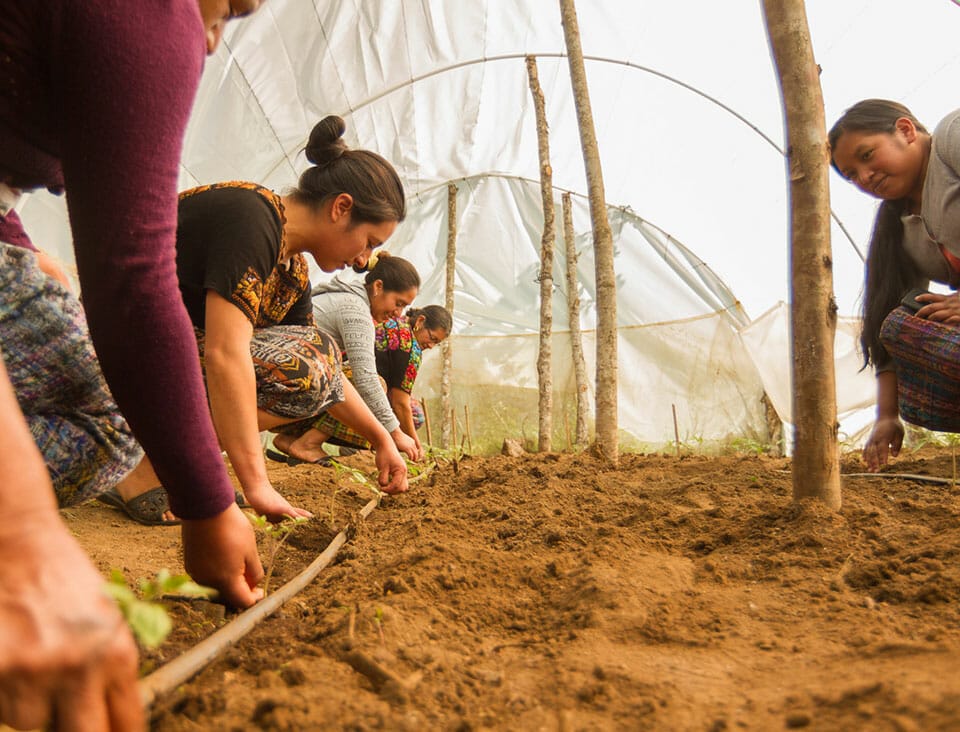
Amplifying Women’s Agency for Improved Household Nutrition
The promotion of social and economic empowerment of women has proven to be a successful strategy in strengthening food security and building the resilience of communities for better nutritional outcomes. Global Communities' Women Empowered groups increase women’s leadership and decision-making at the household and community levels, build a safety net through loans to group members, offer basic financial literacy and invest in livelihoods to weather local shocks and stressors. Promoting gender equality and engaging men as partners is an integral part of our projects to accelerate better health and nutrition outcomes for women and children. Women Empowered groups have been launched in 13 countries through 46 projects, helping over 187,600 women across Africa and the Americas become leaders and decision-makers in their households and communities.
Voluntary family planning is another essential aspect of community-based nutrition because of the relationship between population growth and food security. When women have agency to build in the choice to have children and when, including healthy timing and spacing of pregnancies, the result is better health for mothers and their children. We are committed to expanding access to and the use of voluntary family planning so that women and their partners have the knowledge and skills to make informed decisions for improved maternal, newborn and child health and nutrition outcomes.
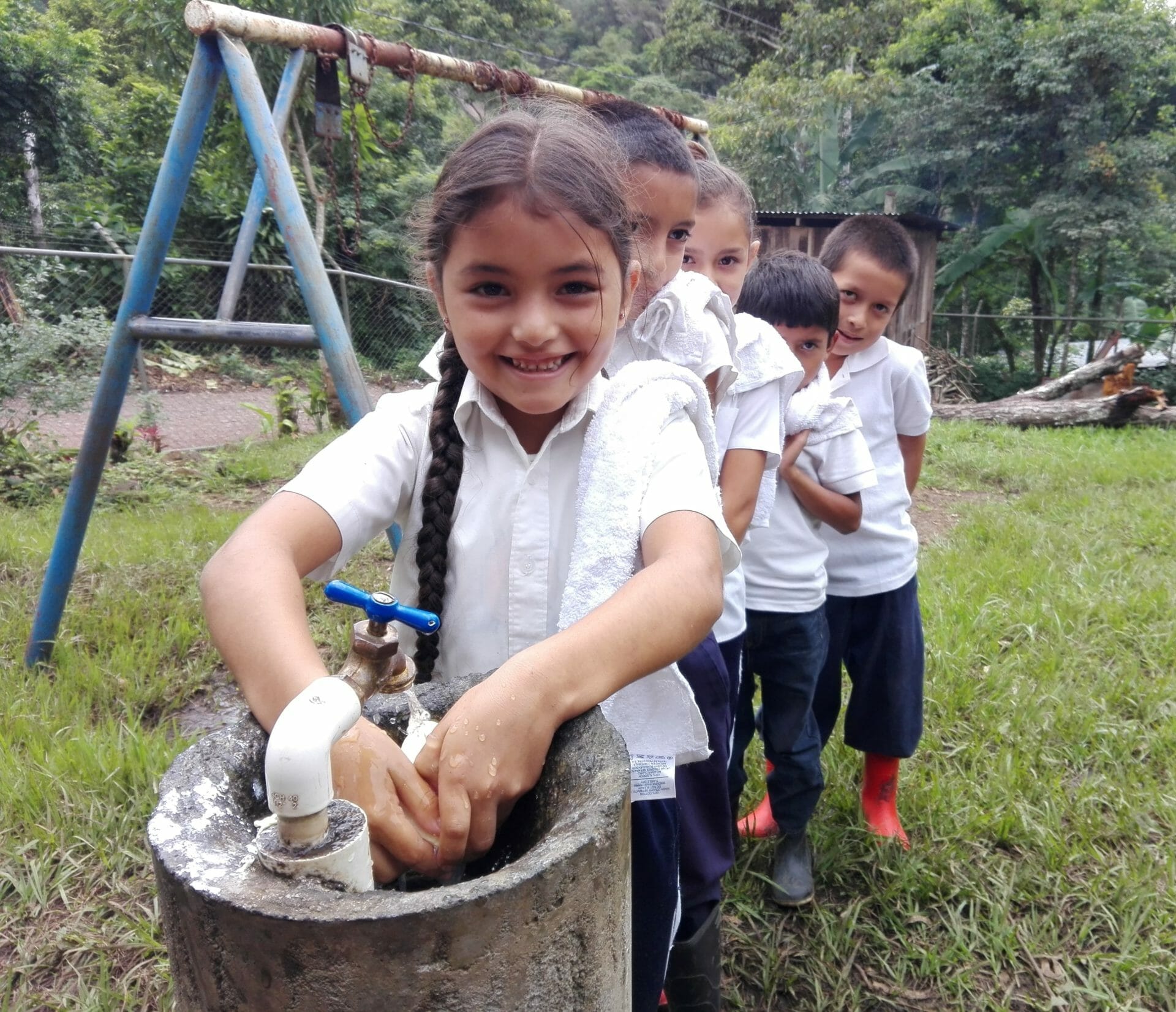
Water, Sanitation & Hygiene
The three primary underlying causes of undernutrition are insufficient food intake, poor care practices and disease – all of which are connected to water, sanitation and hygiene (WASH). According to the World Health Organization, 50% of undernutrition is associated with infections caused by poor water access, sanitation and hygiene. Global Communities utilizes a Nutrition and WASH methodology in our programs to address the facts that both motivate and constrain behavior change related to reducing WASH-related concerns like stunting and childhood diarrhea. Our initiatives accelerate behavior change around exclusive breastfeeding for the first six months, creating clean spaces for children to eat and play, handling children’s food safely, and caregiver and child hand-washing practices. We work to engage and mobilize at the individual, household and community levels, ensuring that resources, services, advocacy and mentoring are in place to support the interconnected objectives of WASH, maternal and child health and nutrition, and agricultural programs.
Leading a diverse group of international and local organizations, Global Communities worked hand in hand with districts in Rwanda to integrate WASH and nutrition education programming with the goal of reducing malnutrition in children under five. We partnered with local governments to assemble WASH social mobilizers, community volunteers and civil society partners in wrap-around, hands-on support for households of malnourished children and pregnant and nursing women.
Our work in this area reaches:
Resources
Briefs & Case Studies
Special Study on Migration for the MCGOVERN-United States Program
Unidos is a project funded by the United States Department of Agriculture (USDA) McGovern-Dole International Food for Education and Child Nutrition Program that aims to improve school-age children’s literacy, increase the use of health and nutrition practices, and improve the effectiveness of food assistance through local and regional purchases. Global Communities with sub-recipient Save the…
Briefs & Case Studies
Mianatra Project Brief
In 2021, USDA awarded Global Communities with the first McGovern–Dole International Food for Education and Child Nutrition (McGovern–Dole) project in Madagascar.

